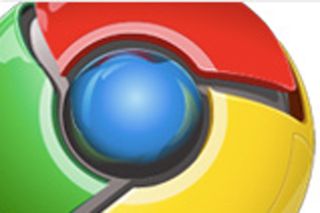Need to Know: Google Chrome OS
Google has unveiled its Chrome OS. But what exactly is it and how will it affect personal computing?

Google yesterday demonstrated an early version of its Chrome operating system, announcing that it would be released to the open source community. (Click here for Chrome screenshots.)
Confused by the difference between the browser and the OS? Wondering what Google is on about when it talks about cloud computing and SSD? Read on to find out.
What is Google Chrome? Isn't that the same as the browser?
Chrome is Google's development project that covers a browser and an operating system.
The OS will be very similar to the browser, largely because it will only run web apps. So it will be mostly browser, plus a few necessary bits like file system, when it does show up on devices next year.
That means that some of the development that happens in the OS could add features to the browser, and that the current early look of the OS actually looks quite like the browser, with tabs and things like that.
What do you mean it'll only run web apps?
Get the ITPro. daily newsletter
Receive our latest news, industry updates, featured resources and more. Sign up today to receive our FREE report on AI cyber crime & security - newly updated for 2024.
Unlike a standard OS, all the applications will be run from the web in the cloud. Your email will be web-based, your docs will be web-based, none of this download and install to run. Whatever you want to do will for the most part be run online.
And more and more apps are moving online - consider Microsoft's Office Web Apps, which Google called a "killer app" for Chrome OS.
What happens if there's no internet connection?
Don't worry, it's not entirely a high-tech paperweight. Many web apps can be used offline, and as HTML 5 spreads, that will be more commonplace.
There are a few OS-based apps, including a small notepad application, which automatically syncs up to Google Docs when there is a connection. And, you can always plug in a film to watch if you're bored. There's also an e-book reader, which could read from a USB, for example.
But the machine will lose a lot of its functionality if there's no connection. Google argued this is true of most computers anyway, as the main use we have for them is connecting to the internet.
What about data? Does it go live in the cloud too?
The netbooks will have limited ability to save data, and all will only have solid state drives, which tend to be smaller.
So the bulk of your data will go up in the cloud, too.
However, this isn't meant to be where you stash every piece of digital data about yourself. Chrome devices are meant to be complementary to a main machine, Google said.
So your photo and file collection can still live on a standard hard disk at home, while you update your Facebook or Flickr accounts on the go with your Chrome device. That's the idea, anyway.




